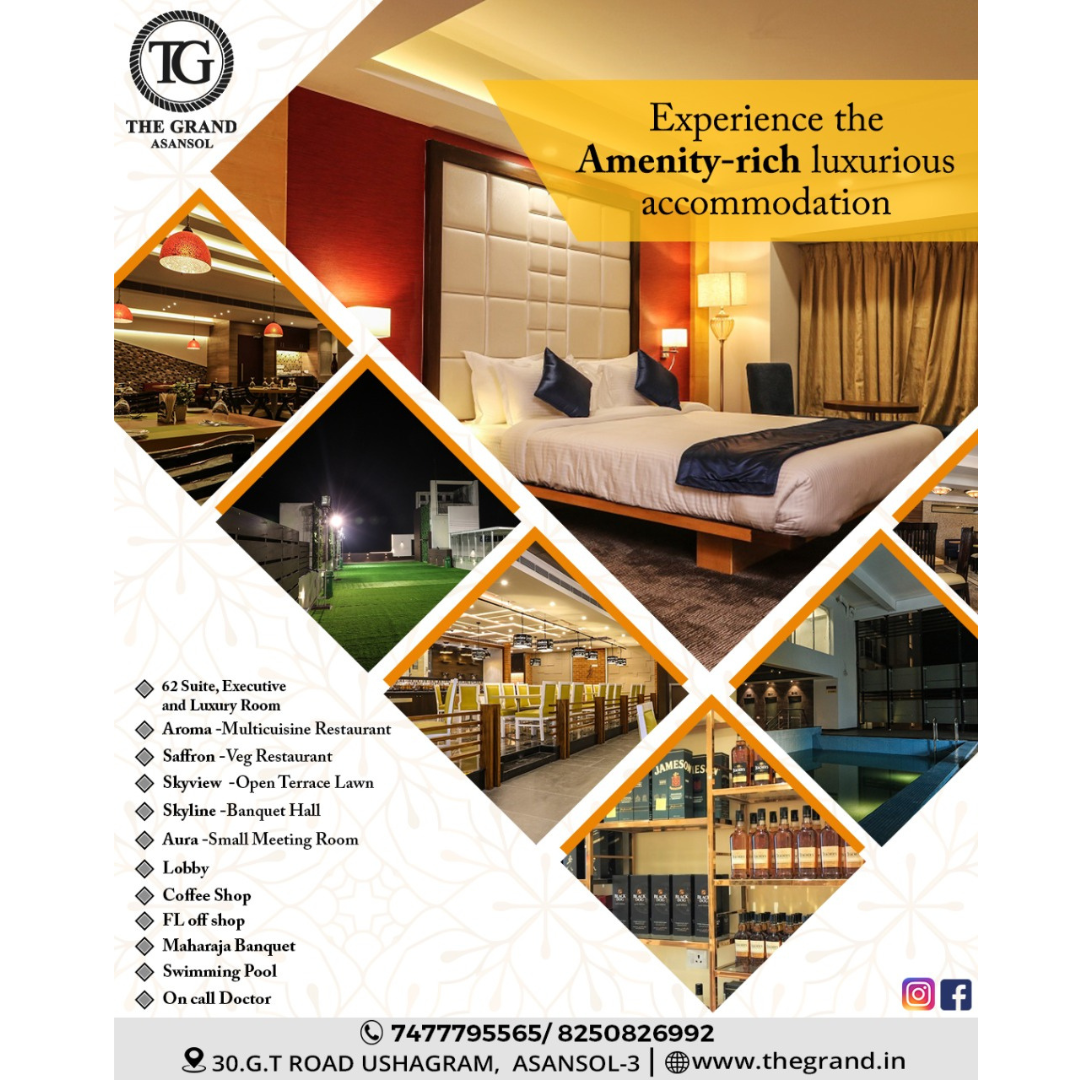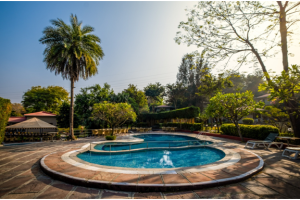
BY HANINDER SACHDEVA,
CEO,
EIGHT CONTINENTS HOTELS & RESORTS
NEW DELHI, 19 NOVEMBER 2024:
Eco-friendly practices are redefining the future of high-end hospitality, pushing the industry to prioritize sustainability alongside luxury. With increasing awareness around climate change, ecological degradation, and the need for responsible resource usage, guests today not only expect opulent experiences but also want to see hotels make conscious efforts toward environmental stewardship. In response, luxury hotels and resorts are now integrating sustainable practices into every aspect of their operations. This shift is helping the hospitality industry create memorable experiences that align with a commitment to preserving the planet.
- Sustainable Architecture and Design:
A cornerstone of eco-friendly luxury hospitality lies in sustainable architecture and design. Many high-end hotels are moving away from traditional construction materials, opting instead for locally sourced, renewable, or recycled materials. This approach not only reduces carbon footprints but also supports local economies and brings a sense of authenticity to the property.
Green building certifications, such as LEED (Leadership in Energy and Environmental Design) or BREEAM (Building Research Establishment Environmental Assessment Method), are increasingly important in high-end hospitality projects. These standards ensure that buildings are energy-efficient, water-efficient, and use resources sustainably. Sustainable design principles extend beyond construction to include green roofs, energy-efficient lighting, and insulation systems that reduce heating and cooling requirements, creating a seamless blend of luxury and environmental responsibility.
- Renewable Energy and Energy Efficiency:
The energy consumption of large hotels can be massive, given the heating, cooling, lighting, and powering of expansive facilities. To address this, eco-friendly luxury hotels are investing in renewable energy sources like solar, wind, and geothermal power to reduce reliance on fossil fuels. Solar panels on rooftops, wind turbines, and ground-source heat pumps are becoming increasingly common features in high-end hospitality properties.
In addition, luxury hotels are embracing energy-efficient lighting and appliances, implementing smart HVAC systems, and adopting room automation technologies. These systems allow guests to control room temperature, lighting, and other features via apps or devices, which helps hotels monitor and optimize energy usage. Some luxury hotels even offer incentives for guests who practice energy conservation during their stays, creating a culture of sustainability that involves both the hotel and its visitors.
- Water Conservation and Responsible Use:
Water scarcity is a global concern, and the hospitality sector, with its high water demands, plays a crucial role in water conservation efforts. Luxury hotels are adopting measures like rainwater harvesting, greywater recycling, and low-flow plumbing fixtures to reduce water consumption. Some properties incorporate water-efficient landscaping, using native plants that require less watering and enhance the local ecosystem.
In-room amenities are also changing to support water conservation. For instance, hotels are encouraging guests to reuse towels and bed linens rather than opting for daily replacements. This simple practice, combined with water-efficient technologies, reduces overall water usage and helps create a sustainable luxury experience without compromising guest comfort.
- Waste Management and Minimization:
The hospitality industry generates significant waste, from food waste to single-use plastics and discarded amenities. Leading luxury hotels are addressing this issue by adopting comprehensive waste management strategies that prioritize recycling, composting, and the reduction of single-use items. Some hotels are working towards “zero waste” certifications, setting ambitious goals to divert waste from landfills through recycling and repurposing initiatives.
To reduce plastic waste, many high-end hotels are replacing single-use plastic toiletries with refillable dispensers or eco-friendly packaging. Additionally, some hotels are working with local farms or composting facilities to ensure that food waste is recycled or repurposed. These initiatives not only benefit the environment but also enhance the brand image of luxury hotels, making them more appealing to eco-conscious travelers.
- Local Sourcing and Farm-to-Table Dining:
High-end hospitality is increasingly embracing local sourcing, especially when it comes to food and beverage offerings. The farm-to-table movement has gained significant traction, with luxury hotels partnering with local farmers, fishers, and artisans to source fresh, organic ingredients. This approach not only supports local economies but also reduces carbon emissions associated with transporting food over long distances.
In addition to offering guests fresh, locally-sourced cuisine, many luxury hotels are introducing on-site gardens where chefs can grow herbs, vegetables, and even small fruit orchards. This not only ensures freshness but also provides guests with a unique, immersive experience as they learn about the origins of their meals. A focus on seasonal, organic, and sustainably-sourced ingredients contributes to a healthier environment and adds an authentic, memorable touch to the culinary experience.
- Eco-Conscious Guest Experiences:
Luxury hotels are finding innovative ways to engage guests in eco-conscious practices without sacrificing their experience of indulgence. Activities such as nature walks, wildlife conservation programs, and guided tours that educate guests on local ecosystems help build a deeper connection between guests and their environment. Many hotels offer unique programs, like beach cleanups or tree-planting sessions, allowing guests to actively contribute to environmental preservation.
Incorporating sustainability into guest experiences not only enhances the brand’s image but also fosters a sense of shared responsibility among guests. When guests leave with a greater awareness of environmental issues, they may carry these values into their daily lives, amplifying the positive impact of the hotel’s sustainable practices.
- Responsible Community Engagement:
Luxury hospitality brands are increasingly focused on creating a positive impact on the communities in which they operate. This includes supporting local artisans, providing fair wages, and respecting local cultures and traditions. By sourcing locally and hiring from within the community, hotels can help drive economic development in the region. Furthermore, investing in community welfare programs, such as educational initiatives or healthcare support, strengthens the relationship between the hotel and the local community.
For high-end hotels, responsible community engagement is not only an ethical choice but also a way to create unique experiences for guests who appreciate authenticity and cultural enrichment. This approach supports a regenerative form of tourism that leaves a positive legacy in the destinations guests visit.
The Future of Luxury Hospitality: A Sustainable Legacy:
As the hospitality industry evolves, eco-friendly practices are no longer optional—they are essential. High-end hotels that prioritize sustainability are setting themselves apart in a competitive market, meeting the demands of eco-conscious travelers and positioning themselves as leaders in environmental stewardship. Embracing sustainable practices enhances a hotel’s appeal, helps reduce operating costs, and contributes to the well-being of the planet.
The future of luxury hospitality lies in a commitment to eco-friendly practices that foster harmony between indulgence and responsibility. As more guests seek experiences that align with their values, luxury hotels have an unprecedented opportunity to create a sustainable legacy that not only enhances guest satisfaction but also ensures the preservation of natural resources for generations to come.

Advertisement:





























Add Comment